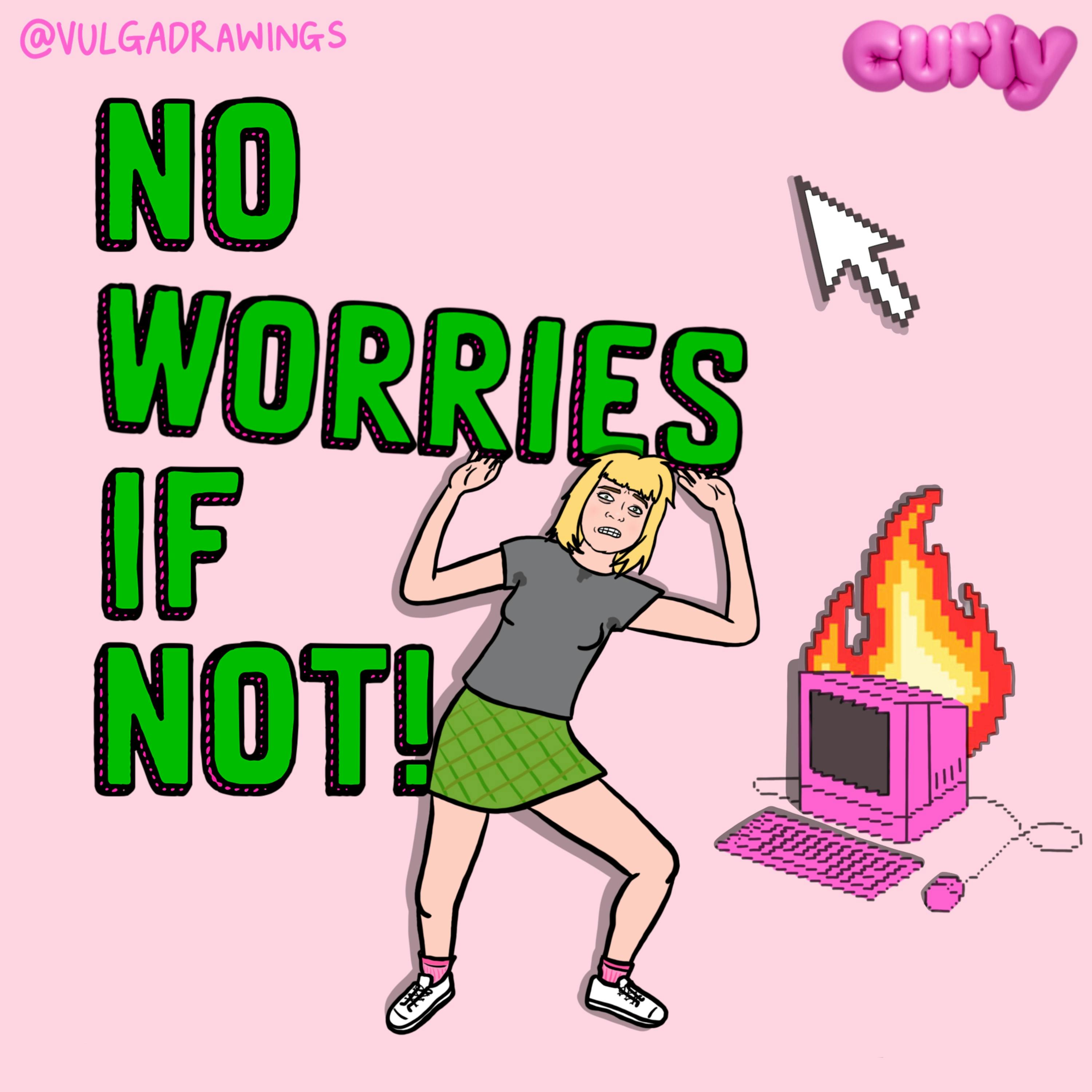
No Worries If Not
curly media
Podcast
Episodes
Listen, download, subscribe
Can you buy fast fashion as a feminist?
Welcome back to No Worries If Not! Series 2, Episode 3. In this episode we're looking at why women take centre stage in the fast fashion industry. Why are 80% of garment workers women? Why do Shein and Boohoo keep making the headlines? How the hell do you buy sustainable clothes with no money? Special thanks to Anna Bryer and Kaenat Issufo from Labour Behind the Label and Lauren Bravo. We’ve included some of Shein and Boohoo’s responses to past allegations throughout this episode, here are some lengthier public responses from them: In regards to reports of low pay and poor conditions at Shein’s factories: “We are extremely concerned by the claims presented by Channel 4, which would violate the Code of Conduct agreed to by every Shein supplier. Any non-compliance with this code is dealt with swiftly, and we will terminate partnerships that do not meet our standards. We have requested specific information from Channel 4 so that we can investigate.Shein’s Responsible Sourcing (SRS) standards hold our suppliers to a code of conduct based on International Labor Organization conventions and local laws and regulations, including labor practices, and working conditions.” In regards to Bloomberg’s report of cotton from forced labour camps: In a statement, Shein didn’t dispute Bloomberg’s test results or say whether it uses cotton from Xinjiang. The fast-fashion retailer said it takes steps in all its global markets “to ensure we comply with local laws and regulations.” A “Sustainability and Social Impact” report on Shein’s US website says the company carries out regular audits aimed at ensuring a zero-tolerance policy for “forced labour” and other environmental and social concerns. In regards to the ‘help me’ label videos: Shein confirmed that the “Need your help” care tag was just a poorly worded label asking customers to help keep the fabric soft by using a softer detergent. They said: “Recently, several videos were posted on TikTok that contain misleading and false information about SHEIN. We want to make it very clear that we take supply chain matters seriously. Our strict Code of Conduct prohibits suppliers from using child or forced labour and we do not tolerate non-compliance.” In regards to the lawsuits brought forward to Shein by independent artists: “Shein respects creators and artists, as well as the intellectual property rights of others. We take all claims of infringement seriously. We continue to invest and improve our processes to detect and prevent infringements. We require our suppliers to comply with a code of conduct which includes certification that the products they manufacture do not infringe the intellectual property of third parties. In the rare cases where our internal systems fail to identify potentially counterfeit items, rights holders can report suspicious listings via our dedicated IP complaints portal, and we take prompt action.” In regards to reports of low pay, poor conditions and the ‘Covid scandal’ at Boohoo’s Leceister factory: An independent report (conducted by Alison Levitt QC) has found that Boohoo knew of “endemic” problems in its Leicester suppliers but did “too little too late” to fix them. Boohoo accepted the review’s recommendations for change in full and apologised for failing to “match up to the high expectations we set for ourselves”. Group CEO John Lyttle said the company would be “a leader for positive change in the city”, adding: “It is clear that we need to go further and faster to improve our governance, oversight and compliance. As a Board, we recognise that we need to rebuild confidence that these matters will be dealt with appropriately and sensitively, and that they will not recur.” As of April 2024, the Boohoo supplier code of conduct published on their website reads “No harsh or inhumane treatment is allowed: physical abuse or discipline, the threat of physical abuse, sexual or other harassment, verbal abuse, or other forms of intimidation shall be prohibited.” Learn more about your ad choices. Visit podcastchoices.com/adchoices
No Worries If Not RSS Feed


